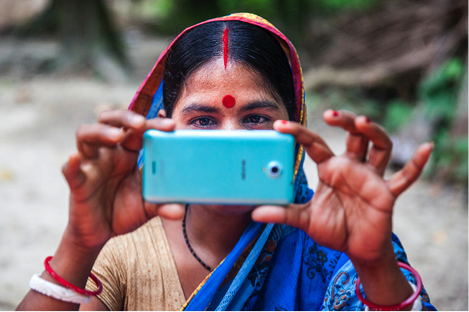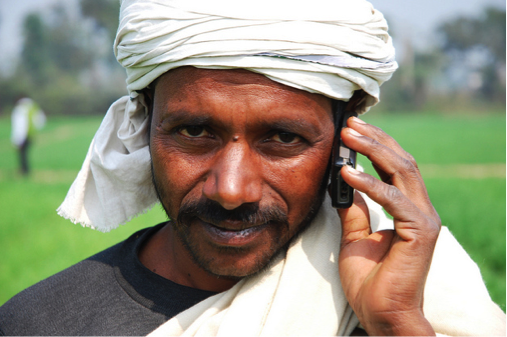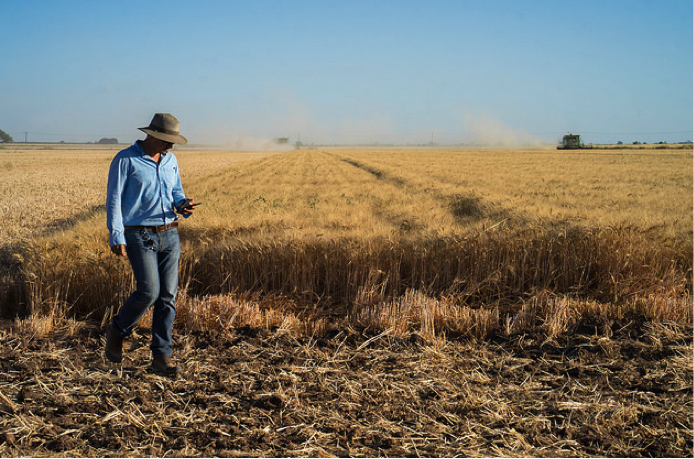Spreading Technology to Promote Human Rights

The way you and I use technology may not be the same as people in different parts of the world do. While we may be worried about posing the perfect selfie on Snapchat or Instagram, others are using smartphones to improve disaster risk management and support health care.
In today’s digital world, technologies are playing an essential role and have great potential to advance in developing issues. This concept is known as "ICT4D" and stands for Information and Communication Technologies for Development. It strives to transmit the amazing achievements technology offers into methods for helping people rise from poverty and contribute to economic growth.
Image Credit: flickr/Robert Dabrowski
ICT4D is able to create an impact at different levels. In addition, it provides new ways of communicating and has different roles in the development process. ICT4D revolves around several issues such as agriculture, health, education, humanitarian emergencies, financial inclusion and international trade. The flow of information through technological devices can empower and support development and sustainability concerning these issues.
Mobile access and communication through social media, e-commerce, apps and other platforms are ways people from underdeveloped nations can have access to information and potentially make positive changes in their communities. ICT4D represents new opportunities for future generations and positive contributions to communities. It allows for job creation and greater participation in society leading to economic growth and development.
The increase in mobile devices in India has made it possible for a greater flow of communication and information. Consequently, mobile-enabled agricultural services have greatly impacted farmers in developing countries. According to the Quarterly Journal of International Agriculture, “education and access to knowledge create conditions that enable farmers to acquire and use information for decision making regarding allocative and technical matters effectively. This leads to growth in the adoption of technology; the use of modern inputs like machines and fertilizers improves yield.”
Image Credit: International Maize and Wheat Improvement
Additionally, ICT educates farmers by informing them of good agricultural and crop management practices. They are able to keep track of their production and consequently raise more cattle and produce more crops, further enhancing their rural productivity.
“Some other benefits which farmers listed were that farmers benefited from improved access to information including seed variety selection, best cultivation practices, protection from weather-related damage and handling plant disease” (Quarterly Journal of International Agriculture). By having access to information through mobile devices, farmers can connect to the agriculture markets and improve productivity.
Image Credit: International Maize and Wheat Improvement
Another purpose of ICT4D is to raise awareness, protect, and defend human rights. Witness is an organization, which supports a global network of people that use video as a tool to document abuses and expose injustices in order to effectively promote positive change. Today, people in any setting from any background can be enabled to act as witnesses and reporters of significant incidents and events. Besides the organization enabling individuals from around the world to make their voices heard, Witness also trains activists in video production, constructs guides and toolkits to enhance film production skills and ensures that technology companies recognize video as a great potential tool for promoting and protecting human rights.
Image Credit: Edmilson de Lima
Implementing ICT4D can be challenging. It’s difficult to apply and maintain technologies in areas where there is insufficient electrical power and infrastructure. Deploying and maintaining ICT infrastructure can also be very costly in the long run and is often overlooked. Though many organizations seek to donate or provide low-cost computers to underprivileged communities, schoolteachers aren't always literate in computer skills and often times do not have the expertise to teach others such skills.
Though ICT4D faces many challenges it still has been able to empower, give the voiceless a voice and promote social change.
Image Credit: The Guardian
One of the American University of Paris’ inspirational projects, which later became an NGO, is known as “Pass the Tech.” In collaboration with AUP alumni, students collect used and refurbished laptops and donate them to young students in Mombasa, Kenya. This initiative will improve education through technological support, promote social change by advocating for ICT4D and create a global network of students. It’s an opportunity to use the power of technology to effectively connect people in order to empower them and potentially foster for economic growth and development.












